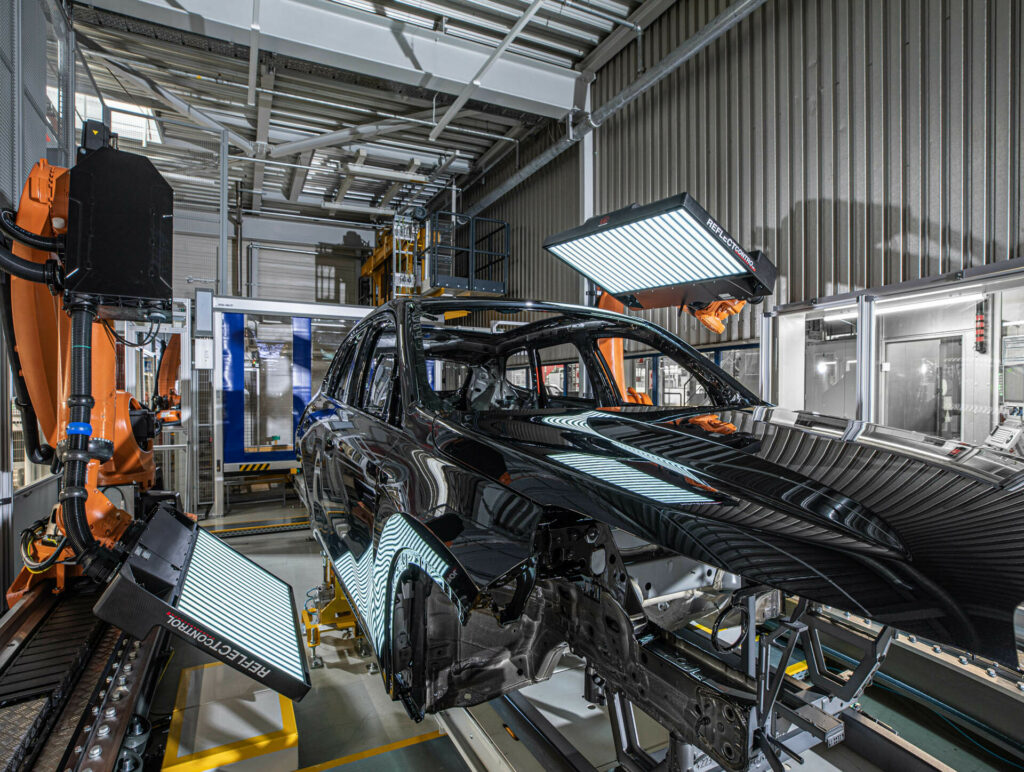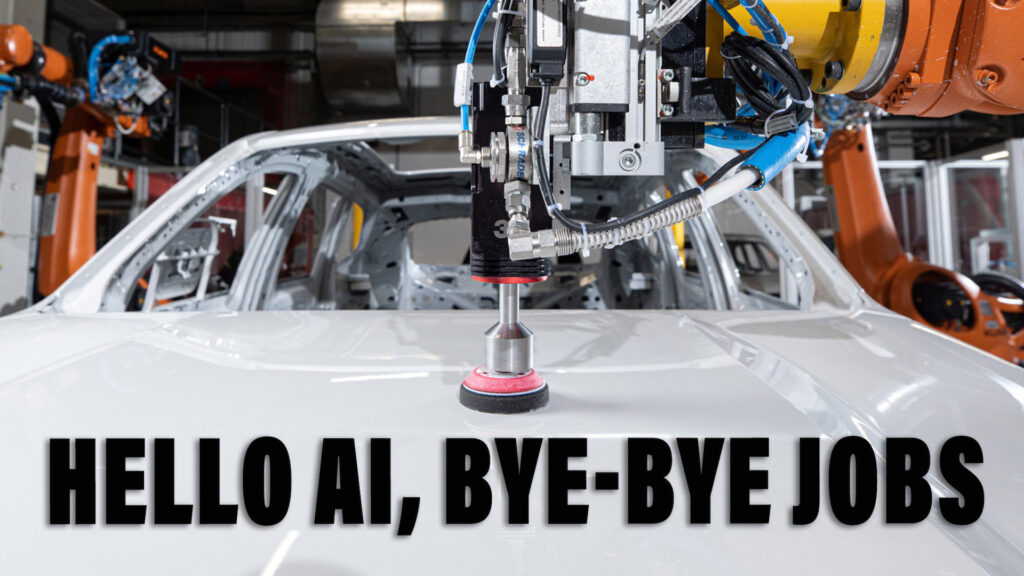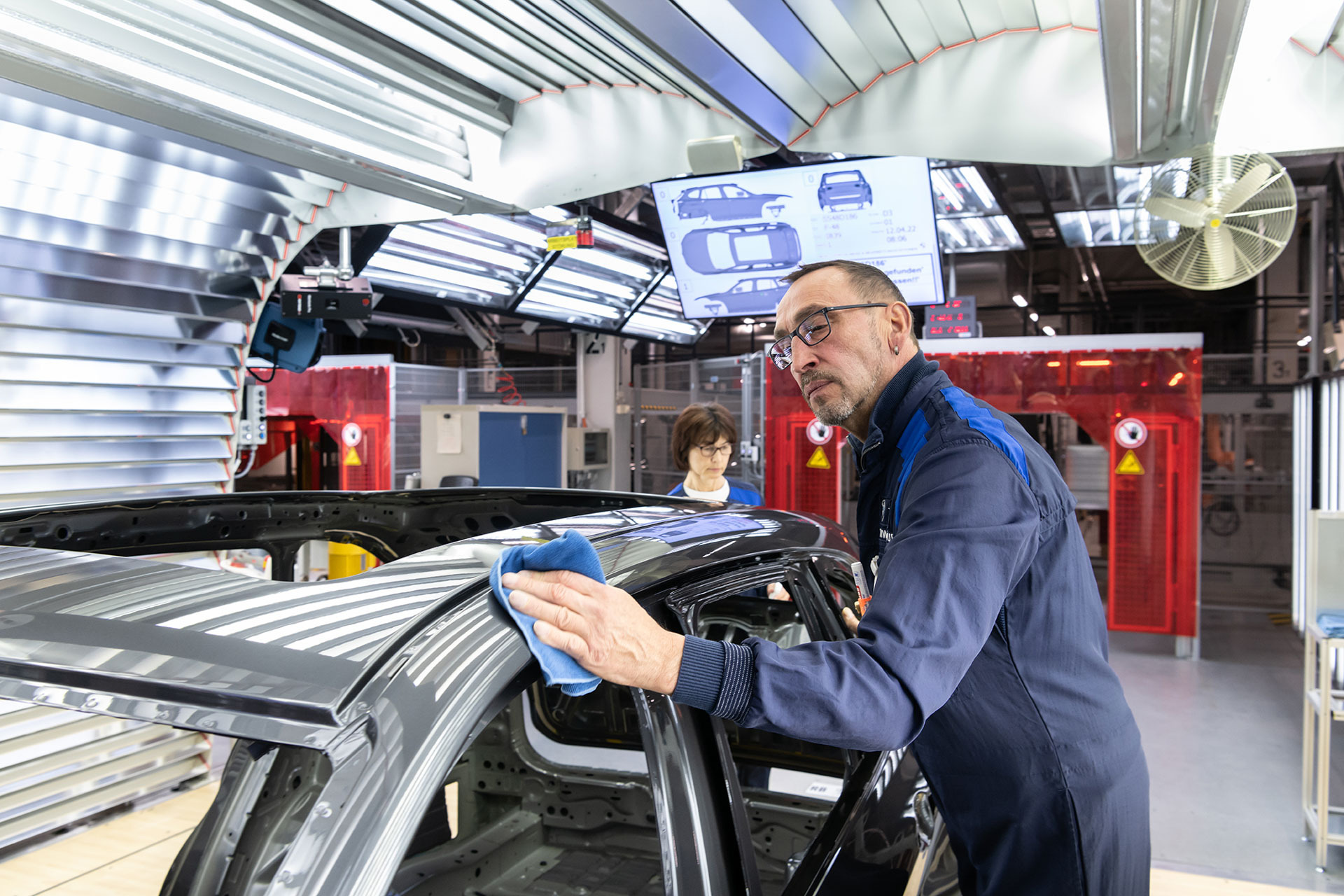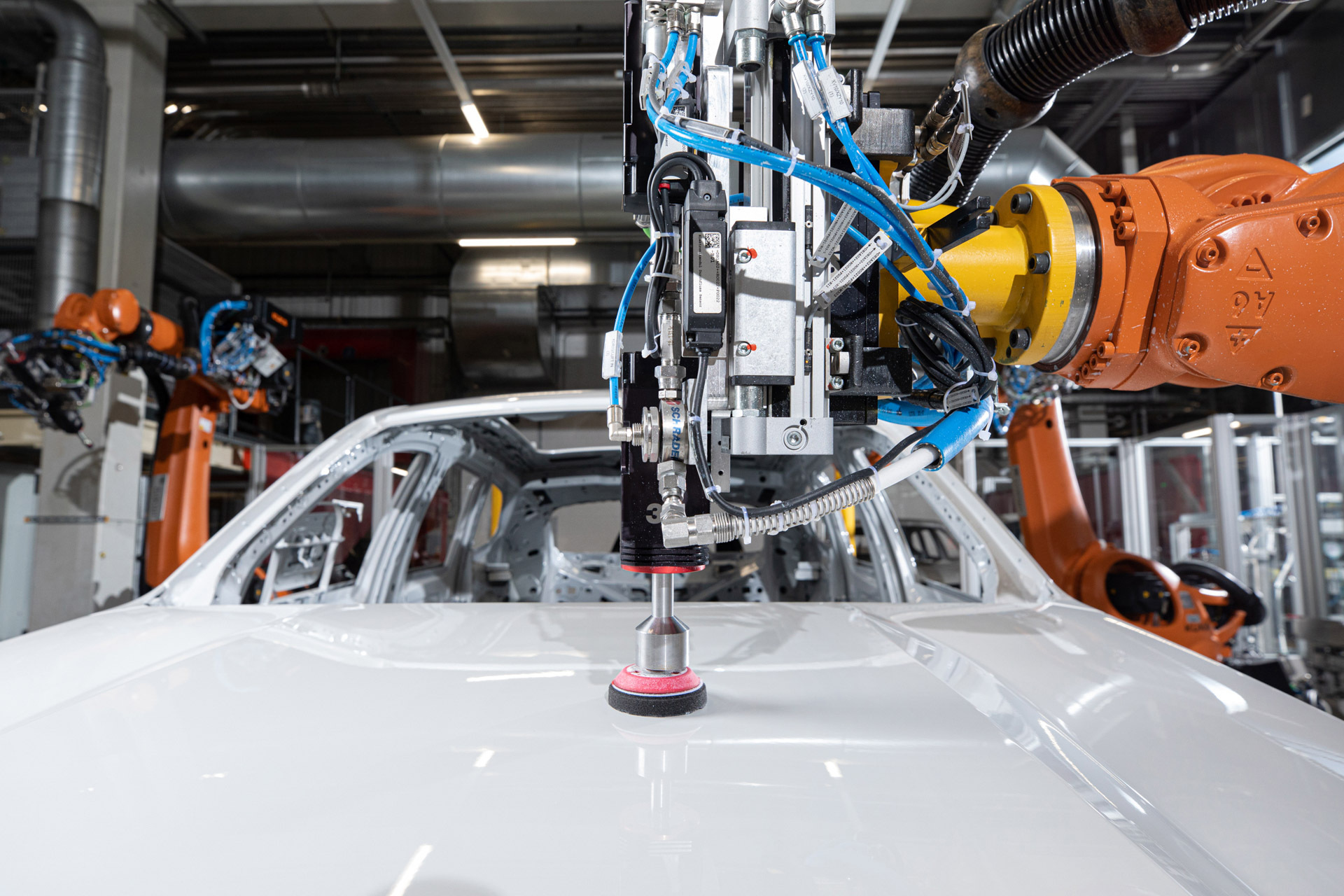Automakers have been using robots to automate and speed up the production of cars for decades, welding the body panels together and painting the finished shell. But the job of spotting and rectifying any blemishes in the completed paintwork is still handled by humans.
Not in BMW’s Regensburg Plant, though. The German factory responsible for building the 1-Series hatch and X1 and X2 crossovers claims to be the first in the world to fully digitize and automate the process of inspecting and marking painted surfaces, identifying faults in the finish that are then corrected by robots.
You might have seen footage from car plants of human technicians using lights to identify flaws in a finished body, then drawing a ring around them so that another set of workers can fix them. But at Regensburg a monitor projects black and white striped patterns onto a vehicle’s surface, which is then scanned by a camera that identifies any change in the reflected stripes. The computer then digitally stores the position, shape, and depth of the flaw, creating a 3D image of it.
Related: Are You The 2024 BMW 5-Series? Photo Surfaces Ahead Of May 24 Debut

Next, it’s time to fix those identified flaws, but rather than a team of skilled body shop pros working their magic, the job is handled by four robots that can sand the problem paint and apply polishing compound. BMW says that using AI throughout the process results in shorter lead times and a consistently high level of surface quality, and plans to roll out the technology to its other plants around the world.
But the robots aren’t quite superhuman, at least not yet. They can’t deal with the edges of the car body, or the edges of panels that butt up to another panel, such as the metal on either side of the gap between the front and rear doors of one of the SUV models built at the plant. And they also can’t handle fuel filler flaps, which are too fragile for the heavy-handed robots. So BMW does ultimately need human workers to step in and add the finishing touches to the body repairs and to conduct the final inspection of the body.
Or at does at the moment. It’s not lost on us that BMW’s news about its AI advance came on the same day we heard that the ‘Godfather of AI’ Geoffrey Hinton has quit Google over concerns about the technology, which is forecast to cost hundreds of millions of jobs in the years to come.





















